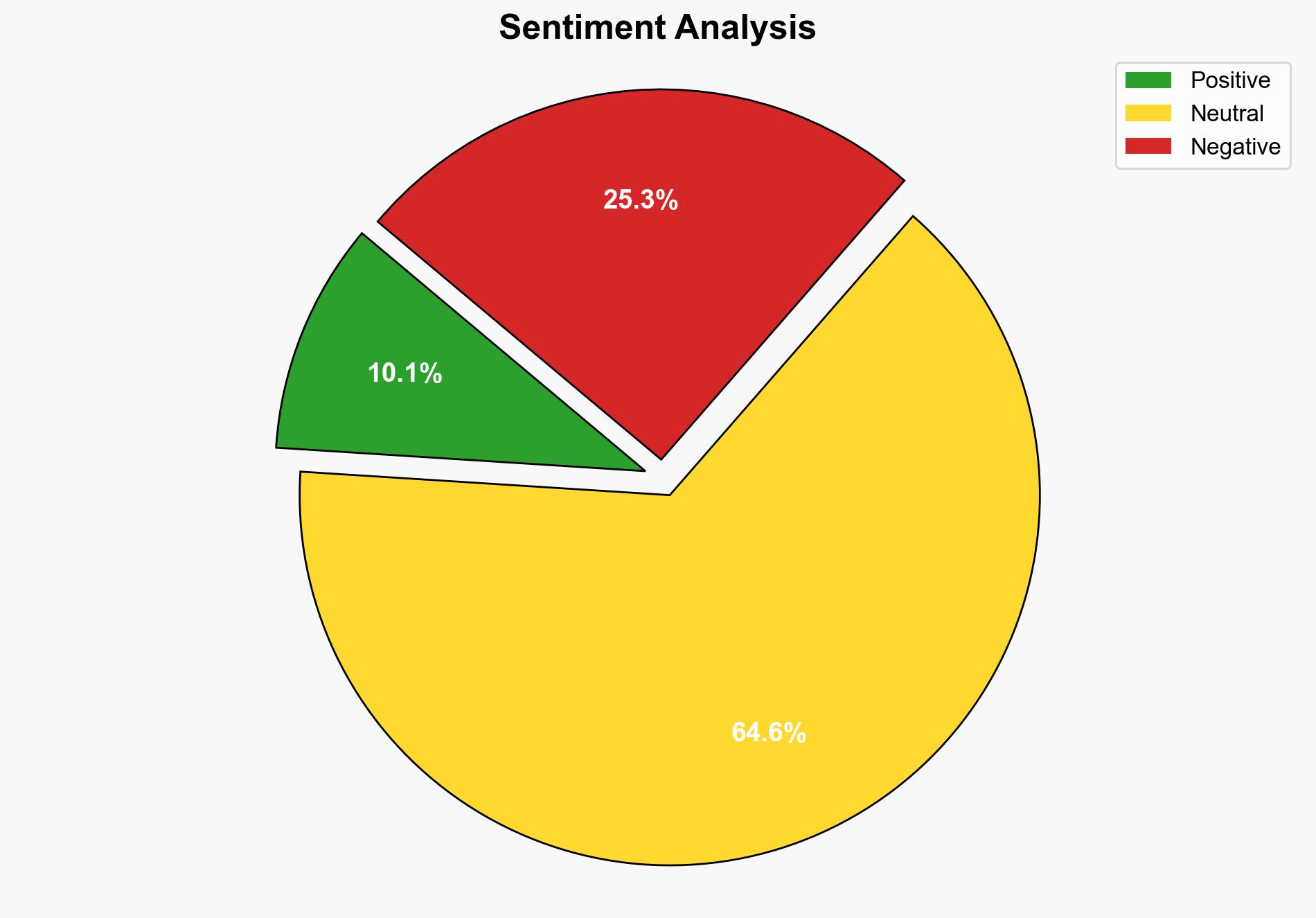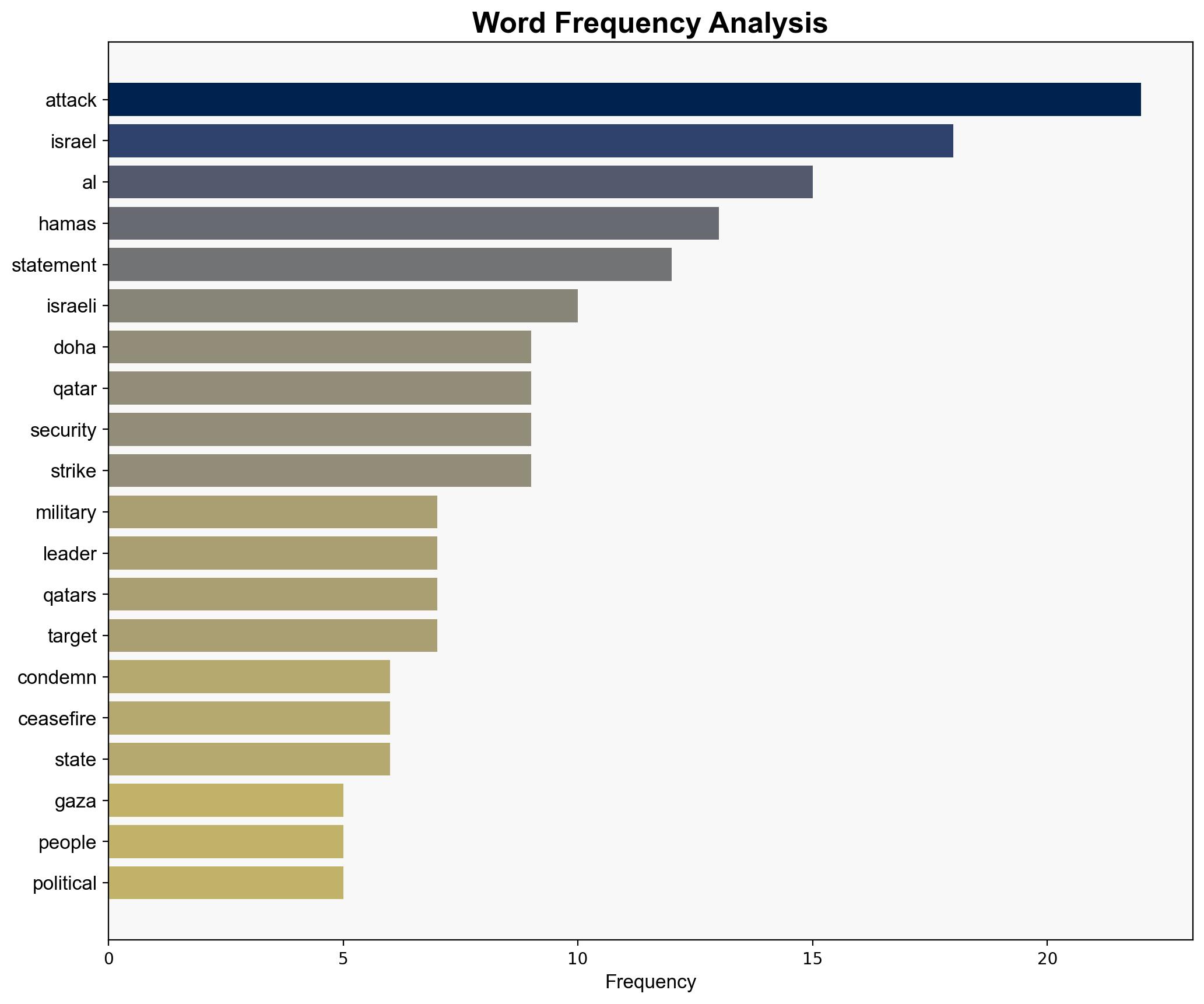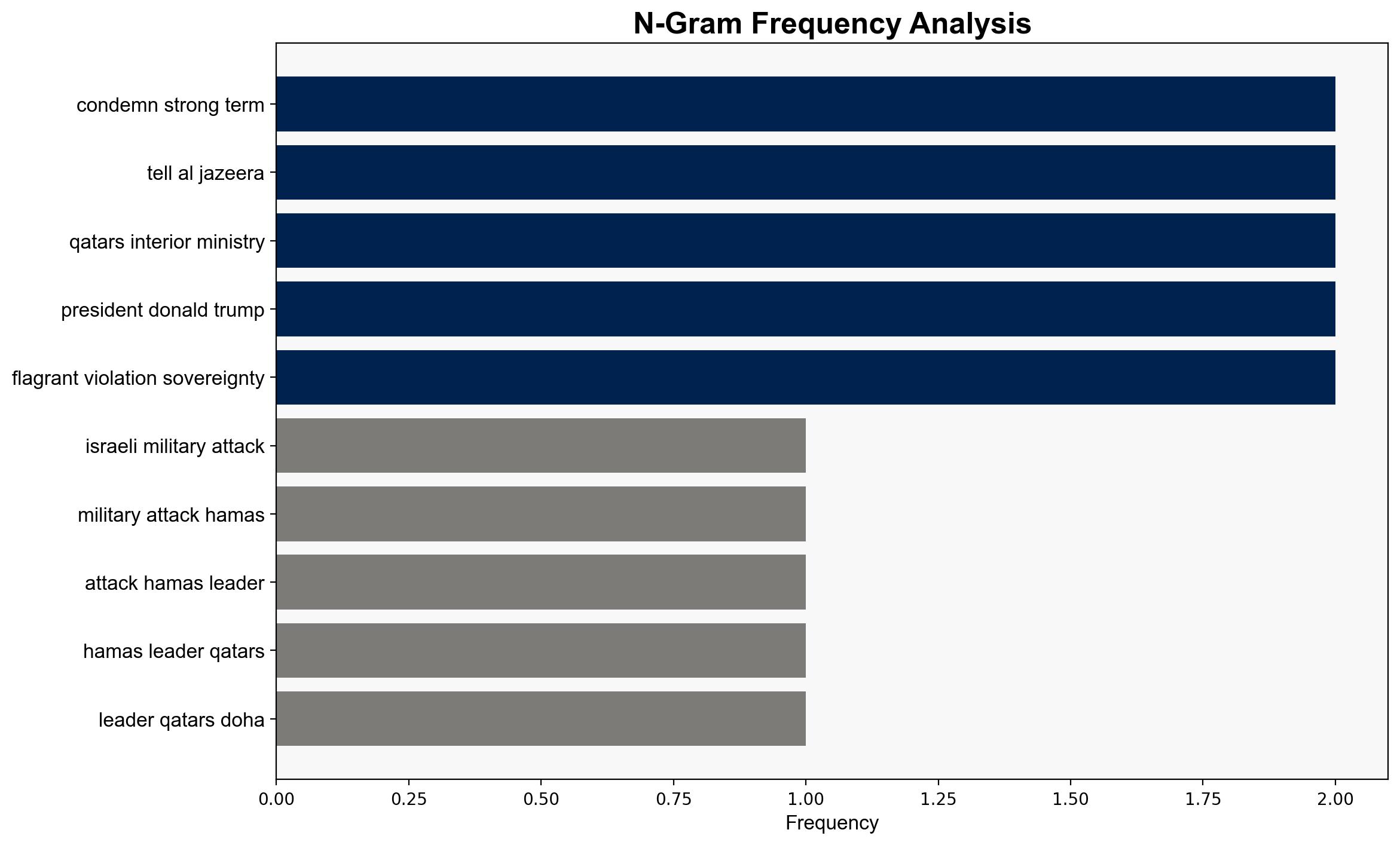Israeli military says it has attacked Hamas leadership in Qatars Doha – Al Jazeera English
Published on: 2025-09-09
Intelligence Report: Israeli military says it has attacked Hamas leadership in Qatars Doha – Al Jazeera English
1. BLUF (Bottom Line Up Front)
The most supported hypothesis is that the Israeli military conducted a targeted operation against Hamas leadership in Doha, Qatar, with the intent to disrupt Hamas’ operational capabilities and negotiations. This action has escalated tensions in the region, potentially impacting diplomatic relations and regional stability. Confidence in this assessment is moderate due to conflicting reports and the high-stakes geopolitical context. Recommended action includes diplomatic engagement to de-escalate tensions and a thorough investigation into the incident’s legality and implications.
2. Competing Hypotheses
1. **Hypothesis A**: The Israeli military conducted a targeted operation against Hamas leadership in Doha to disrupt their operations and negotiations, leveraging intelligence from Shin Bet.
2. **Hypothesis B**: The reported attack is a misattribution or misinformation, possibly intended to manipulate regional dynamics or justify future military actions by Israel or other regional actors.
Using the Analysis of Competing Hypotheses (ACH) method, Hypothesis A is better supported by the explicit statements from Israeli military sources and the context of ongoing hostilities. However, Hypothesis B cannot be entirely dismissed due to the lack of independent verification and potential biases in reporting.
3. Key Assumptions and Red Flags
– **Assumptions**: It is assumed that Israeli military statements are accurate and that the operation was solely intended to target Hamas leadership. It is also assumed that Qatar’s condemnation reflects genuine diplomatic concerns rather than strategic positioning.
– **Red Flags**: The absence of independent verification of the attack and casualties raises questions. The timing of the attack during ceasefire negotiations suggests possible strategic manipulation.
– **Blind Spots**: Potential undisclosed motivations of regional actors and the full scope of intelligence used to justify the attack are not clear.
4. Implications and Strategic Risks
The attack could lead to increased regional instability, impacting diplomatic relations between Qatar and Israel, and potentially involving other Middle Eastern countries. The presence of a large U.S. military base in Qatar adds a layer of complexity, as any escalation could draw in international actors. There is a risk of retaliatory actions by Hamas or its allies, which could further destabilize the region.
5. Recommendations and Outlook
- Engage in diplomatic efforts to de-escalate tensions between Israel and Qatar, possibly through third-party mediation.
- Conduct an independent investigation to verify the details of the attack and assess compliance with international law.
- Scenario Projections:
- Best Case: Successful diplomatic intervention leads to a ceasefire and reduced hostilities.
- Worst Case: Escalation of conflict involving multiple regional actors, leading to broader instability.
- Most Likely: Continued tension with sporadic incidents of violence and diplomatic posturing.
6. Key Individuals and Entities
– Khalil al-Hayya (Hamas leader)
– Benjamin Netanyahu (Israeli Prime Minister)
– Sheikh Tamim bin Hamad Al Thani (Qatar’s Emir)
– Sheikh Mohammed bin Abdulrahman bin Jassim Al Thani (Qatar’s Prime Minister and Foreign Minister)
7. Thematic Tags
national security threats, counter-terrorism, regional focus, international law, diplomatic relations





